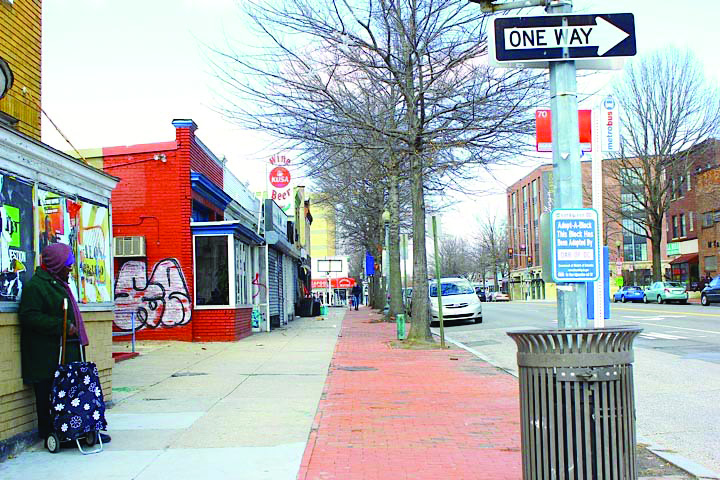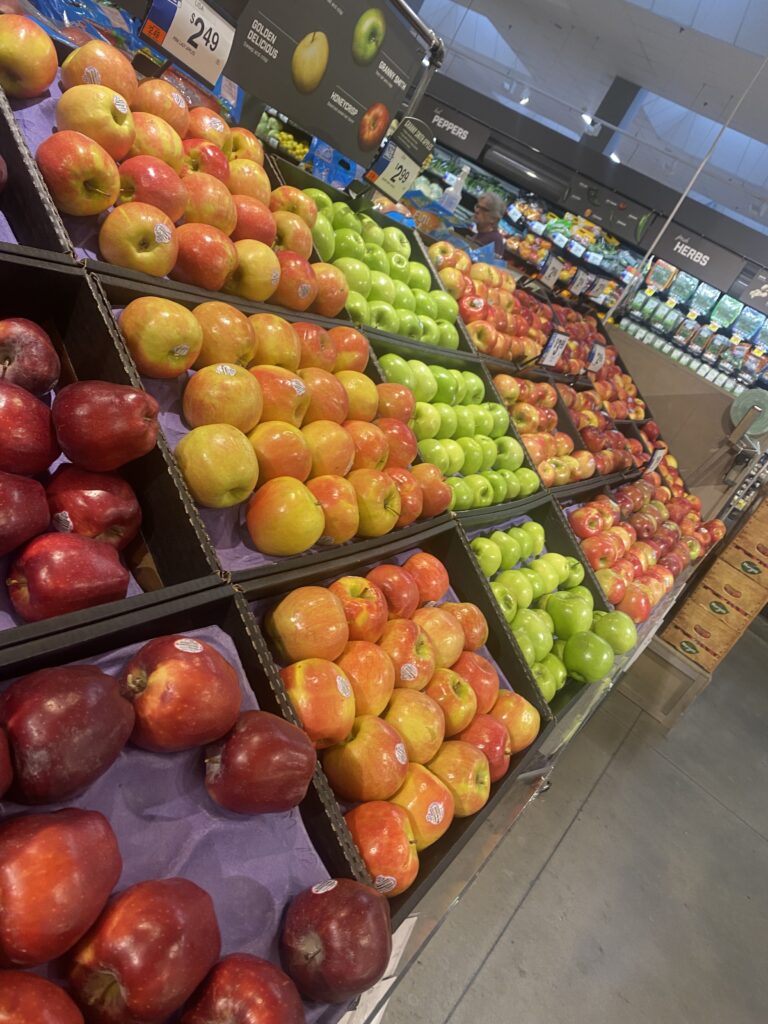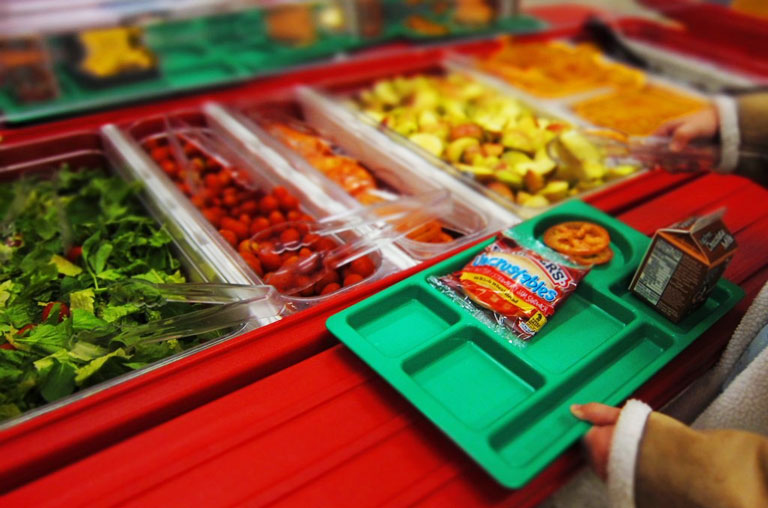Tucked between Washington Hospital, the Soldiers’ Home and McMillan Reservoir in Columbia Heights sits nearly three acres of grass that remained empty for years.
After noticing the property’s potential, it took Josh Singer 5 months to obtain a construction permit. But in 2011, Wangari Gardens was born.
“It was a piece of property that fell through the cracks. There are a lot of properties like this around D.C.,” said Singer, Wangari’s Executive Director.
The property fell under the Department of Transportation’s jurisdiction. They allowed for the community garden’s construction; the land remains public property.
After founding Wangari, Singer got a job with D.C. Parks and Recreation as a Community Garden Specialist–building gardens around the city. Wangari Gardens acts as his testing ground, allowing him to experiment with programming before introducing it to the many other Washington gardens he manages.
Wangari hosts 110 plot-holders that live within a mile and a half of the garden. Priority is given to the neighborhood’s low-income, long-term residents.
“D.C. has, in my opinion, an expensive range of outlets for foods,” said Alice Mboone, a Wangari gardener.
The 57-year-old native Washingtonian attributes her good health to her diet, rich in fresh produce and grown in her very own garden. A Civil Service worker with Veteran Affairs, Mboone spends her free time nurturing chives, lettuce, tomatoes and squash with her 4-year-old granddaughter.
All of Wangari’s produce is encouraged to be organic and non-GMO (genetically modified organism).
“Organic is so much more expensive, you actually have to pay for people to not put crazy stuff in your food. It’s ridiculous,” said Angela Swayze, Wangari’s communication’s director.
One of the fastest gentrifying areas of the District, according to Swayze, Columbia Heights boasts frozen yogurt shops and fast food joints-a-plenty. However, parts of the neighborhood are still designated “food deserts” due to the lack of supermarkets that offer healthy, fresh foods. The closest “supermarket” is the Walmart located at the Columbia Heights metro station.
According to the United States Department of Agriculture (USDA)’s Food Access Research Atlas, the area surrounding Wangari has a lack of supermarkets and a surplus of residents without access to vehicles. According to a report by the USDA, about 2.3 million people live more than one mile away from a supermarket and do not own a car.
“This is a pretty poor neighborhood with a lot of food security issues. I like community gardens. A lot of people think they’re the silver bullet. They’re not the solution, but they definitely supplement,” Singer said.

Research indicates that unhealthy food and toxic environments are two of the biggest drivers behind modern-day disease. Chronic diseases such as diabetes, heart disease and obesity are long-term illnesses that are preventable, mostly through diet and exercise. Chronic disease is responsible for 60 percent of deaths worldwide, according to the World Health Organization.
Food insecurity–the lack of ready and consistent access to fresh, healthy foods–is directly linked to chronic disease. Nearly 15 percent of households in the U.S. are food insecure. Minority households are more than twice as likely to be food insecure as white households, according to a George Washington University project, “Face the Facts USA.”
“[Community Gardens] definitely get a lot of healthy and affordable food into the community. We’re trying to get in as much fresh, healthy and sustainable food as possible,” Singer said.
Lack of healthy food retail can also hinder a community’s economic development. Wealthy districts have three times as many supermarkets as poor districts, white neighborhoods contain an average of four times as many supermarkets as predominantly black neighborhoods and grocery stores in black communities are usually smaller and have less selection, according to PolicyLink’s study “The Grocery Gap.”
Nearly as important as the nutritional value they offer, Mboone believes urban gardens are also oases of calm, beauty and bounty in areas that don’t have enough of these life-enhancing qualities.
“I do it for therapy. I’ve read that hands in the soil cleanses and heals the body. I wanted to experiment. I don’t get sick. It makes me feel good,” Mboone said.
Mboone takes advantage of the free yoga and solar cooking workshops Wangari offers. She has also found free gardening classes hosted throughout the District.

In addition to the fenced-in garden, Wangari offers public vegetable and medicinal gardens, a strawberry patch, berry bushes and a fruit orchard which anyone can harvest from. The garden provides free tools, compost and seeds, as well as classes and workshops for gardeners ranging from beginners to the most experienced.
“If you looked around, you didn’t see those who could’ve benefited most by it,” Mboone said. “There’s a whole community that’s unaware, unknowledgeable, disinterested.”
Having been raised by her mother, a Mississippi gardener, Mboone is a strong advocate for homegrown produce. Her latest venture is beginning to grow her very own apple trees.
“Take your little tree around with you and when you finally get a house, plant it.” Mboone said. “Don’t look at what you don’t have, look at what you have or what you’re capable of doing. Grow you some trees. Create some legends.”
People’s choices about what to eat are contingent on the options that are available to them, as well as what they can afford. The overabundance of fast food chains in food deserts sell cheap meat and dairy-based foods that are high in fat, sugar and salt, according to the Food Empowerment Project — a California-based “food justice” organization. The organization also finds the most affordable foods in mainstream grocery stores, corner delis and convenience stores are snack cakes, chips and soda. These foods are just as unhealthy.
“Whole Foods, people call it Whole Paycheck. I’ve heard that many times. It’s expensive and people around here can’t afford it. It all comes down to money,” Swayze said. “This area is slowly being gentrified, so who knows. Whole Foods may end up here in a few years, but we’re not going anywhere. Wangari will be here.”








